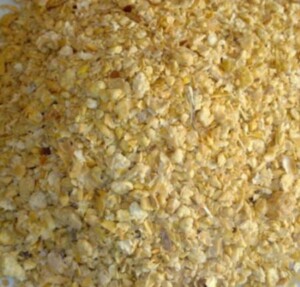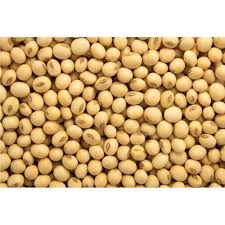Soy In Horse Feeds The Silent Antinutrient. Check those feed tag labels! Many horses are allergic to the soy that is in the horse feeds today. The horse’s body can only absorb a limited amount of iron from foods and supplements. It is easier for a body to absorb a higher percentage of heme iron (found in meat proteins), than in nonheme iron (found in plant-based foods), and a variety of food components. The phytates and proteins found in soy may inhibit nonheme iron absorption.
The principal goitrogens in soybeans are the estrogenic plant hormones known as “isoflavones.” The antinutrients known as “saponins” in soy may also be goitrogens. Cooking and processing methods such as using heat, pressure, and alkaline solutions, will neither deactivate nor remove isoflavones or saponins.

Goitrogens lead to
- Depressed thyroid function
- Pancreatic stress
- Phytates which prevent absorption of life enhancing minerals
- Phytoestrogens which can block the hormone estrogen and have adverse effects on tissues
Thyroid Function
Soy can interfere with thyroid function, which may affect your horse’s metabolism. Soy contains phytoestrogens, these are the chemicals that can mimic estrogen in the body and phytoestrogens can block estrogen.
Many horses are allergic to the soy that is in the horse feeds today. Soy can be present as soybean meal (a byproduct of the soybean oil industry), raw beans, or roasted beans. Soy is difficult to digest, which can cause gas, bloating and general discomfort. Fermented forms of soy are more easily digested than non-fermented soy foods.
If you’re thinking of feeding raw soybeans as part of a home made horse feed, please reconsider! Horses should not be fed raw soybeans. Raw soybeans contain a specific enzyme that acts as a trypsin inhibitor. Trypsin is an important enzyme involved in the digestion of many proteins. This enzyme, being a high trypsin inhibitor, interferes with the digestion of Lysine and Arginine which are both essential amino acids, which needs to come from their feed as the horse can not build them internally.
Soy In Horse Feeds The Silent Antinutrient
The raw soybean contains numerous anti-nutrients. As mentioned earlier, processing soybeans, can reduce them, it does not eliminate them. The raw soybean contains other anti-nutrients, including phytic acid (from phytates), which binds and prevents mineral absorption (especially zinc, calcium, and magnesium).
If you have a horse that has been diagnosed or is showing signs of hypothyroid problems, pancreatic stress or showing signs of being anemic…check the feed tag labels of everything you’re putting into the horses system.

Equine Challenge Supplements contain NO Soy. With Soy being the antinutrient that it is, we strongly recommend that our customers do not feed soy, in any form, to their horses.

